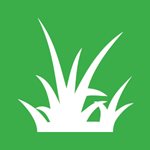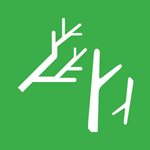What can I put in each bin? Garden organics bin (lime green lid)
Your GO bin is for garden organics such as:
- Weeds
- Garden clippings
- Twigs and sticks
- Pruning, cuttings and trimmings
- Palm fronds
- Leaves etc.
The contents will be sent to a composting facility where it will be processed into compost for use on farms, parks, and gardens.
Food waste is not acceptable in the GO bin.
To find a detailed list on what to do with your waste visit Recycle Right.






Recycling bin (yellow lid)
Your recycling bin is for recyclables such as:
- Aluminium cans
- Steel cans
- Cardboard - boxes, egg cartons and inner tubes from toilet roll and paper towel, milk/juice cartons (not silver lined UHT long life cartons)
- Paper - newspaper, paper bags, computer paper, envelopes, magazines, junk mail, paper wrapping paper (not shredded paper)
- Plastic bottles and containers without lids (no polystyrene foam or meat trays)
- Glass - bottles and jars (remove lids, metal lids go in recycling bin – place them in a steel can and pinch it together)
All items should be empty, rinsed, and dry. Remove lids and place in the bin loose (small lids to be placed in waste bin). Do not place recyclables in bags.
The contents of this bin are sent to a Materials Recovery Facility where they are separated, baled, and sent to manufacturers to be recycled into new products. To see inside the Bibra Lake’s Material Recovery Facility (MRF), check out Veolia’s online tour.
The City highly encourages residents to participate in the WA Containers for Change program that refunds ten cents for approved recyclable containers. For more information go to https://www.containersforchange.com.au/wa.
General waste bin (red lid)
Your general waste bin should always be a last resort. This bin is for:
- Non-recyclable general waste
- Food scraps
- Items contaminated with food, such as paper towels, serviettes, tissues, paper plates, soiled pizza boxes and fish and chip paper
- Nappies/ sanitary items
- Shredded paper
- Clothing that cannot be sent to charity
- Soft plastics
- Cigarette butts
The contents of this bin will be sent to the Kwinana Waste to Energy Plant, Avertas Energy, where your waste will be converted into energy as soon as Plant is operational.
Items that cannot be placed in any kerbside bin
Some items should not be place into any of your bins, including:
- Batteries (car or household)
- Fluorescent tubes or CFL’s (compact fluorescent lamps)
- Electronic equipment (E-Waste)
- Aerosol cans
- Gas cylinders
- Hot or burning ashes
- Oils or poisons
- Acid or hazardous waste
- Sand, bricks, mortar, concrete
- Large, heavy, sharp objects
- Asbestos
- Motor vehicle parts, tyres, oil filters
- Pathological or cytotoxic waste
- Medical waste
These items should be taken to an appropriate waste disposal Facility. Fees may apply.
To find a detailed list on what to do with your waste visit Recycle Right.
The City, alongside our waste collection contractor Veolia, will assess all areas to see if we can service our community more efficiently with the introduction of the GO bin. If there are changes to your collection area, you will be notified prior to the GO bin being rolled out in 2024/25. Visit www.lovemykwinana.com/threebin and register to make sure you stay up to date.
There will be an increased charge on top of your existing Waste Service charge. Current calculations anticipate the increase to be approximately $22 per annum to your annual rates notice for the annual service cost, in addition to the cost of the initial roll-out of the new bins.
The waste service charge for the year is $353 which includes:
- 52 waste collections
- 26 recycling collections
- 2 bulk waste collections
- 3 green waste collections
- Annual waste and recycling guide and communications throughout the year
Following the introduction of the GO bin in 2024/25 you will also receive 26 GO collections from your third bin.
With the introduction of the GO bin, your total weekly bin capacity increases by 20L.
We will continue to work hard to ensure we provide you the best value for money for your waste service.
The lime green lidded 240L GO bin will automatically be given to all residential properties over 350m2 as they typically have larger gardens - commercial properties and multi-unit dwellings/ apartments will not be included for this reason.
If you’re on a smaller property or you are a commercial business you can opt in at any time. The City will provide details on how to opt into this service ahead of the GO bin roll-out. Visit www.lovemykwinana.com/threebin and register to make sure you stay up to date.
We encourage you to give GO a go before choosing to opt out. This will allow you the chance to see if this service works for you before cancelling this service. You can opt out of this service after the roll out has concluded. Choosing to opt out will result in a loss of 20L bin capacity.
Yes, you can. Additional bins can be provided by the City at additional cost. See the Council Fees and Charges on our website for detailed information on all waste related costs, including additional bins. Once requested, a pro-rata cost will be automatically added to your rates notice.
If you have a 240L recycling bin, you can upgrade to a larger 360L bin for free.
To order an additional bin, or to upgrade your recycling bin for free, contact our contractor Veolia on 1300 293 955.
You must be the property owner to order an additional bin.
Tenants must get written approval from the property owner or property manager to request an additional service as additional charges apply.
Currently, over a third of waste bin content in Kwinana is Garden Organics. This content will move out of your general waste bin into the GO bin if separated correctly. The 3 bin GO systems increases total bin capacity each week by 20L.
If you find you require additional bin space for waste, recycling or garden organics, you can choose to order additional bins from the City, at additional cost. See Council Fees and Charges on our website for detailed information on all waste related costs, including additional bins. Once requested, these costs will be automatically added to your rates notice.
To order an additional bin, or to upgrade your recycling bin for free, contact our contractor Veolia on 1300 293 955.
You must be the property owner to order an additional bin.
Tenants must get written approval from the property owner or property manager to request an additional service as additional charges apply.
If you misuse your bins, such as placing general waste in your GO or recycling bin, you may receive an infringement up to $350 in accordance with the City's Waste Local Law and may also have your recycling and GO service removed if you repeatedly contaminate them.
If you’re unsure how to use your bin, visit Recycle Right or contact our contractor Veolia on 1300 293 955.
With the decision to introduce a GO bin in 2024/25, the current verge collection service will be reviewed to ensure the City provides the most efficient verge collection service for the Kwinana community’s needs going forward. Any resulting proposal to change the verge collection service will be widely communicated to residents ahead of any changes being implemented. Visit www.lovemykwinana.com/threebin and register to make sure you stay up to date.
The compost created from the collection of Kwinana’s GO bin material is processed on a commercial scale. While there is no ability to sell this material directly back to residents from the processor, the material does end up in widely available compost products sold by a range of retailers throughout the Perth metro area.
The City will be exploring options to potentially provide compost to our residents. Visit www.lovemykwinana.com/threebin and register to make sure you stay up to date.
Energy from Waste (EfW) is a process where residual waste is thermally treated to generate and produce electricity, significantly reducing CO2 emissions compared to landfilling waste and using fossil fuels to generate electricity.
The City’s general waste bin material will be delivered to Avertas Energy in Naval Base. This facility will produce 36MW of baseload electricity to the Southwest Interconnected System electricity grid. This is the equivalent of taking 85,000 cars off Perth’s roads, powering 50,000 Perth households every year.
Avertas Energy located in Kwinana will not only process residential waste for energy recovery, but it will also produce ash by-products which are used internationally for construction materials, recovering over 6,000 tonnes per year of recyclable metals not normally recovered by other means. Metallic materials from the waste feed will be recovered and recycled, while other by-products will be sorted out for reuse as construction materials.
If you misuse your bins, such as placing general waste in your GO or recycling bin, you may receive an infringement up to $350 in accordance with the Citys Waste Local Law and may also have your recycling and GO service removed if you repeatedly contaminate them.
The City’s emphasis is on educating the community. City officers will aim to give verbal or written advice about better practices rather than fines. Fines will generally only be given when repeated advice is not acted upon, or when dangerous/hazardous goods are placed out for collection that creates an unacceptable level of risk. We highly encourage you to reach out to us for support if needed.
Together we can be part of a greater community movement to manage waste in a more sustainable manner, improving resource recovery and protecting expensive infrastructure, people and our environment.
If you’re unsure how to use your bin, visit Recycle Right or contact our contractor Veolia on 1300 293 955.
In October 2022, the City surveyed our community and received 877 responses from passionate residents.
We advertised this survey by sending a flyer to every household within the City advising a survey was live through Love My Kwinana, asking you to be a “Bin-fluencer” and to have your say on your bin system. In addition to this flyer we advertised this survey on numerous occasions in October through print and social media.
Once the survey closed, the City conducted a focus group in November, inviting around 80 survey participants at random to participate in an in depth focus group. The results from this focus group along with the survey results directly influenced the feasibility assessment outcomes.
The City asked numerous questions to ensure that we fully understood what you want. We found that:
Bin preference
Pro-three bin
- 84% of residents are willing to pay something toward a three-bin organics service.
- 16% of residents would like the service but do not want to pay for it.
Against three-bin
- 30% stated they didn’t want the third bin due to the additional cost.
- 24% stated they didn’t want a third bin as they already compost at home
Food Organics and Garden Organics (FOGO) services are still quite new in Western Australia. The City’s Feasibility Assessment found there are still several challenges and risks with this type of service. Critically, there is currently not enough processors or market demand for FOGO material, which means FOGO is very expensive compared to a Garden Organics (GO) system. In Kwinana, we have far more garden organics in our waste bins than food waste, which means there is not a lot of advantage to recovering our food waste for the significant extra cost.
Changing from a 2-bin service to a 3-bin GO service recovers an additional 14% of material at an additional cost of $800,000 per annum. Changing to FOGO would only recover an additional 7% of material but would cost $1.2 million per annum more than GO. The City’s Feasibility Assessment considered a range of factors across cost, environmental, social and governance outcomes, whereby GO demonstrated the best value for money for our community at this time.
The City has not ruled out FOGO all together, but instead has committed to transitioning to GO in 2024/25 and revisiting the feasibility of FOGO by 2029/30. If by this time, the cost-benefit of FOGO has improved to the point that it represents good value for money for the Kwinana community, we will transition to a FOGO system.
Yes! The City highly encourages earth cycling at home as it is beneficial for your garden, carbon footprint and great for growing your own food.
Find out more by visiting Recycling and Waste Reduction.